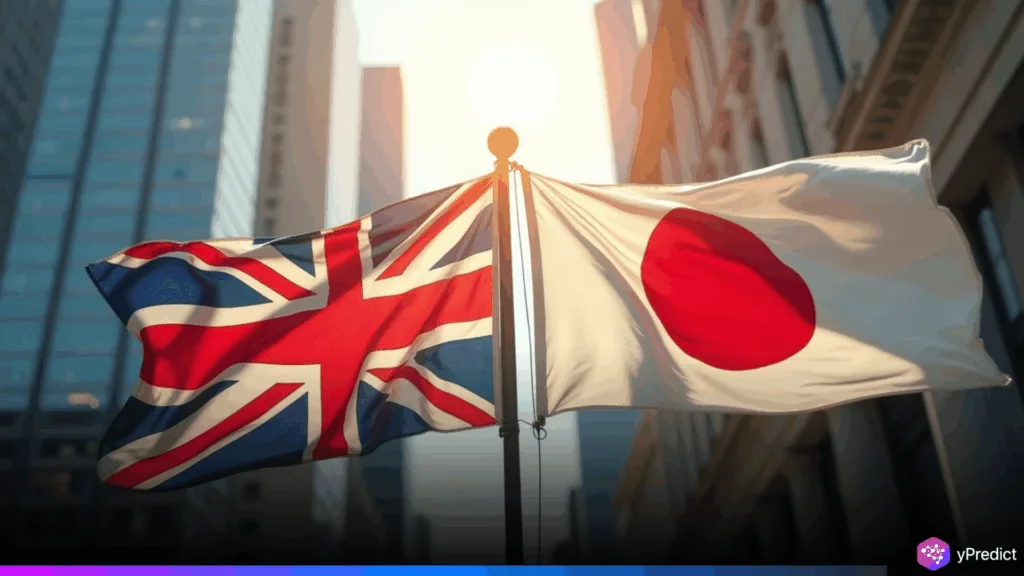
The GBP/JPY currency pair is under bearish pressure, with the price sitting below 194.50 at early European trading hours. For the third consecutive day, it has been falling. The action comes before the BoE’s highly anticipated decision, when it is anticipated that interest rates will not change.
Additionally, rising tensions in the Middle East and Japanese policy outlooks have lowered investor confidence. Traders are keeping a close eye on the Bank of Japan and the Bank of England for signs of global instability.
Will the BoE Interest Rate Stance Shift Soon?
Investors are anticipating that interest rates will stay at 4.25% after the BoE decision. Latest polls suggest that the majority of analysts view the next reduction as likely to take place in August. Additionally, there may be another cut by the end of 2025. According to analysts, the central bank is remaining cautious because of the growing Israel-Iran conflict and the possibility of rising oil prices.
NIESR’s Monica George Michail and other policymakers anticipate just one rate cut this year. She attributed the rise in economic uncertainty to tensions around the world. Therefore, the British pound could fall in response to any indication of escalation, leaving the GBP/JPY susceptible to further drops.
BoJ Caution Keeps Japanese Yen from Rising
The Japanese yen may not appreciate significantly as the pound declines. Additionally, the Bank of Japan has made it clear that it will postpone raising interest rates this year. Recently, Governor Kazuo Ueda emphasized the negative risks facing Japan’s economy. Among these is the possible impact of US tariffs that might be imposed in the second half of the year.
The BoJ’s dovish policies have already had a significant impact on the value of the Japanese yen. However, as the central bank slowly weans away from easy policy, the yen is gaining some strength. But with inflation still below its target, the BoJ won’t be tightening anytime soon.
Direct interventions have been a traditional tool to control Japan’s currency. Sometimes the BoJ devalues the yen, particularly when worries about international trade rise. This background provides additional context for the current BoE decision and rate-hold expectations.
GBP/JPY Faces Uncertain Path Ahead
The broader picture for GBP/JPY remains clouded by conflicting signals. On the one hand, the Bank of England will keep interest rates the same because of economic caution. On the other hand, the yen’s strength might be constrained by the Bank of Japan’s tardiness in raising rates. Until there is a noticeable change in policy on either side, the cross may keep moving in a small range.
If the BoE decision contains any surprises, the markets might respond quickly. The value of the pound might drop if there are signs of future easing. Nonetheless, a more hawkish stance might encourage a brief increase in the GBP/JPY exchange rate.
Future geopolitical developments should be closely watched by traders. An increase in tensions in the Middle East would be capable of affecting world growth and the value of the British pound and the Japanese yen. Central bank statements, inflation numbers, and bond yields are the next big data points to look out for in the coming weeks.
Final Verdict
The GBP/JPY exchange rate in the future will be determined by central bank policy and sentiment towards risk worldwide. Currently, the BoJ remains dovish, and the BoE remains solid. The pair might remain range-bound if neither bank changes its position or if geopolitical risks increase. Therefore, in uncertain times, traders need to remain vigilant as both currency policies change.







